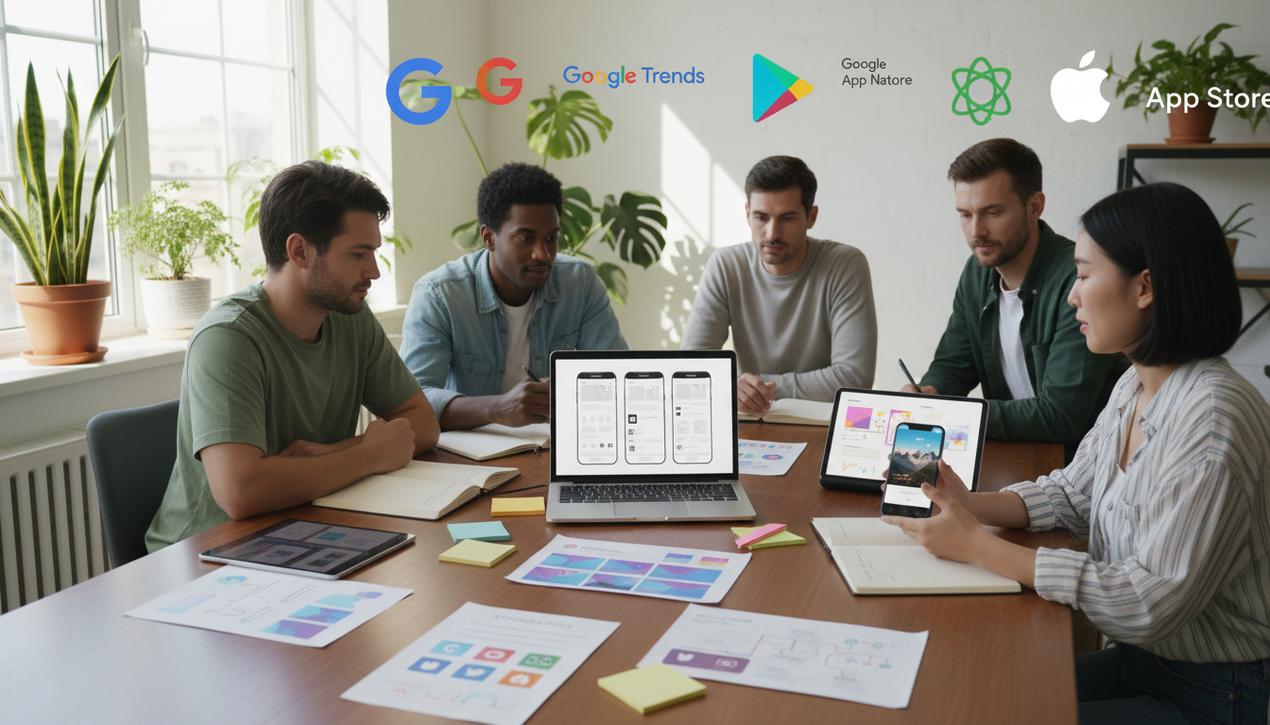How to Make Money With an App: 8 Proven Models for 2025


You have a revolutionary app idea, and the tools to develop it are more accessible than ever. But a critical question remains: how do you turn that idea into a viable source of revenue? In 2025, the mobile app market is a colossal economy, with consumer spending projected to surpass $270 billion. However, the competition is fierce, with over 5 million apps available across the major app stores. Navigating this ecosystem and choosing the right monetization strategy is the key to moving from a passion project to a profitable business. There is no magic bullet, but a deep understanding of the different business models is essential. This guide explores the 8 most effective strategies and current trends to help you make money with your mobile app and ensure its financial longevity.
Before You Monetize: The Foundations of Profitability
Diving headfirst into choosing a revenue model without a solid foundation is a recipe for failure. Before you even think about in-app purchases or advertising, it’s imperative to validate your project’s fundamentals. A monetization strategy cannot save an app that nobody wants to use.
Validate Your Idea and Know Your Audience
The first step is to ensure your app meets a real need or a strong desire. Who are your target users? What are their problems? Are they willing to pay for a solution? Conducting market research, analyzing competitors, and creating user personas will help you define a clear value proposition. An app that solves a complex problem for a professional niche will not have the same monetization strategy as a hyper-casual game aimed at the general public.
The Importance of User Experience (UX)
A smooth, intuitive, and enjoyable user experience is the cornerstone of retention. A user who leaves your app after 30 seconds due to a confusing interface will never generate revenue. Monetization must be integrated naturally into the experience, not create friction. For example, an intrusive ad that interrupts an important task will drive users away, while an optional rewarded video to get a bonus in a game will be much better received.
The 8 Main Models to Make Money With an App
Once the foundations are established, you can choose from a palette of business models. The trend in 2025 is towards hybridization, often combining several of these strategies to maximize revenue.
1. Paid Apps (Pay-to-Download)
This is the most direct model: the user pays a one-time fee to download and use the application. This strategy has the advantage of generating revenue from day one. However, it creates a significant barrier to entry. To convince a user to pay before even trying the product, your app must have an extremely strong value proposition, a solid reputation, or target a specific niche willing to invest (e.g., professional applications, creative tools, ad-free games).
2. The Freemium Model
The “Freemium” model (a portmanteau of “Free” and “Premium”) is extremely popular. It involves offering a free version of the app with basic features and encouraging users to upgrade to a paid version to unlock advanced features, remove ads, or lift certain limitations. This model is effective because it allows you to acquire a large user base without friction. The challenge is to find the right balance: the free version must be useful enough to retain users, but limited enough to make the premium version attractive. Apps like Evernote or Spotify are perfect examples.
3. In-App Purchases (IAP)
This model is the revenue backbone for many applications, especially in the mobile gaming sector. Users can buy goods or services directly within the app. There are several types of purchases:
- Consumables: Single-use items, such as extra lives, in-game currency, or “boosts” (e.g., Candy Crush Saga).
- Non-consumables: Permanent features unlocked via a one-time purchase, such as a photo filter pack or a new game character (e.g., Procreate Pocket).
4. Subscriptions
The subscription model has experienced explosive growth and has become a major trend. It offers a recurring and predictable revenue stream, which is very attractive for businesses. The user pays a fixed amount (monthly or annually) to access the app’s content or services. This model is ideal for content-based apps (streaming like Netflix, news), services (meditation like Calm, fitness), or productivity tools (Microsoft 365). The key to success is to provide continuous value to justify the recurring payment.
5. In-App Advertising
Integrating advertising is an effective way to monetize a free app with a large audience. However, it must be used with caution to avoid degrading the user experience. The most common ad formats are:
- Banner Ads: Discreet, but with low click-through rates and revenue.
- Interstitial Ads: Full-screen ads that appear at transition points (e.g., between game levels). More effective but more intrusive.
- Rewarded Videos: The user chooses to watch a video ad in exchange for a reward (e.g., an extra life, virtual currency). This is the most popular format because it is voluntary.
6. Affiliate Marketing and Sponsorships
This model involves promoting third-party products or services within your app and earning a commission on sales or leads generated. This is a relevant strategy if your app targets a well-defined audience. For example, a travel app could recommend hotels or airlines via affiliate links. Sponsorship involves a partnership with a brand that pays to be featured exclusively in your app.
7. Data Monetization
This approach must be handled with the utmost caution and full transparency to the user, in compliance with regulations like GDPR. This is not about selling personally identifiable data. Data monetization involves collecting anonymized and aggregated usage data to derive insights into market trends. These analyses can then be sold to research institutions, companies, or investment funds.
8. Transaction or Commission Fees
This model is the standard for marketplace-type applications that connect two types of users (sellers and buyers, drivers and passengers, etc.). The platform takes a percentage or a fixed amount from each transaction made through the app. Giants like Uber, Airbnb, and Etsy have built their empires on this business model.
How to Choose and Optimize Your Strategy in 2025
The choice of the ideal monetization model depends entirely on the nature of your application, your target audience, and your business goals. In 2025, the trend is clearly towards flexibility and hybridization. Don’t limit yourself to a single model. An app can very well offer a premium subscription while also providing rewarded videos for free users. Data analysis is your best ally: closely monitor key performance indicators (KPIs) like the average revenue per user (ARPU), the conversion rate to paid, and the retention rate. Don’t hesitate to test different approaches (A/B testing) to find the right balance that maximizes your revenue while offering an excellent experience to your users.
Making money with a mobile app is a complex but achievable challenge. Success does not depend on a magic formula, but on a well-thought-out strategy that starts with a high-quality application meeting a clear need. By wisely choosing from the available monetization models and adapting them to your audience’s expectations, you give yourself every chance to build a sustainable and profitable business in the dynamic app economy.




